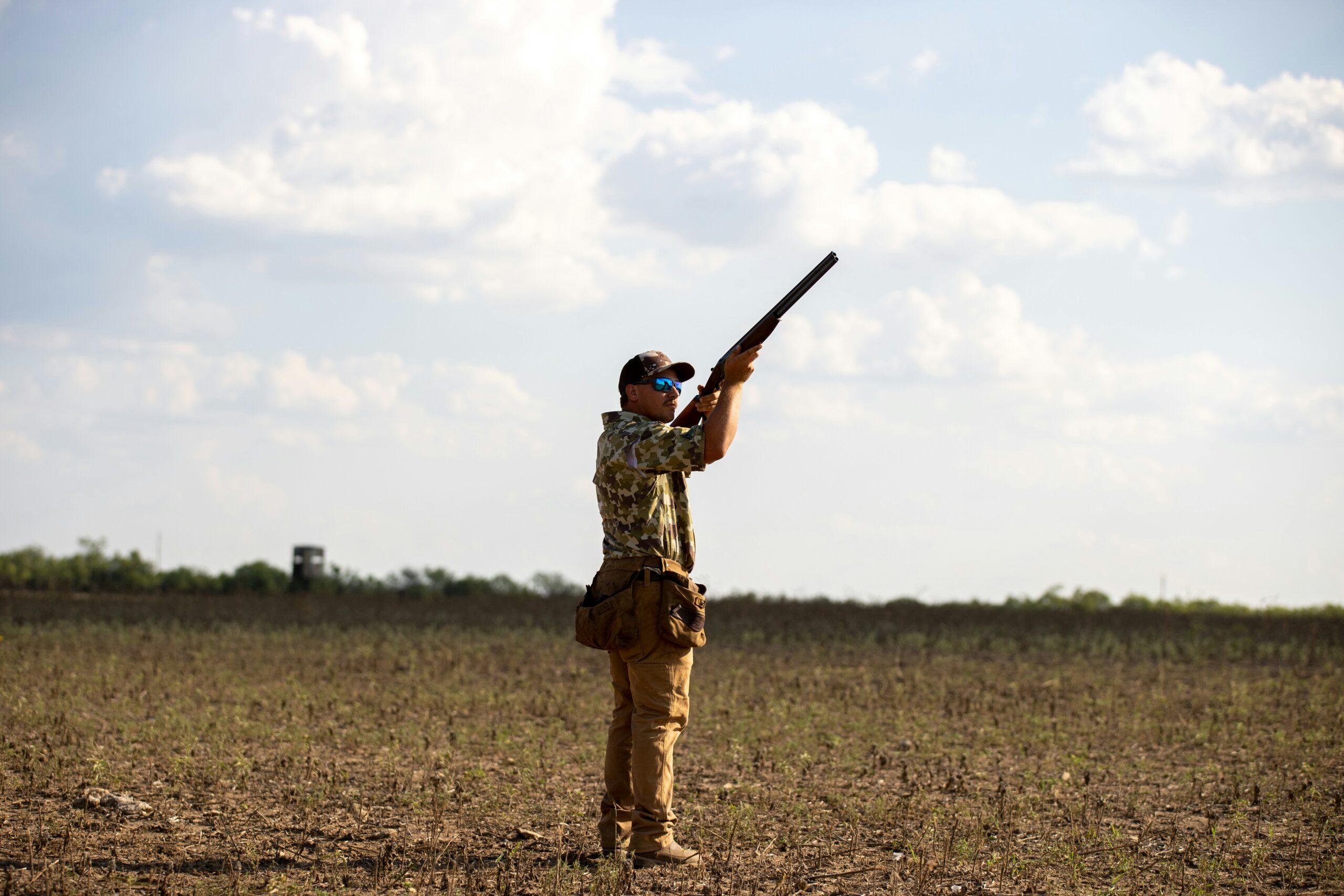Hunting 101: Ethical Practices and Techniques

Ethical Considerations in Hunting
Hunting is a traditional activity that has been practiced for centuries, but it comes with a set of ethical considerations that must be taken into account. One of the fundamental principles of ethical hunting is to respect the wildlife being pursued. Hunters should always aim to make clean and humane kills, avoiding unnecessary suffering to the animal. This includes using proper equipment and shot placement techniques to ensure a quick and efficient harvest.
Another important ethical consideration in hunting is to minimize environmental impact. Hunters should strive to leave the natural habitat as they found it, taking care to not disturb the ecosystem or cause unnecessary harm to the environment. This includes properly disposing of waste, respecting property boundaries, and following regulations to protect sensitive areas. By practicing ethical hunting behaviors, hunters can contribute to the welfare of the wildlife and the preservation of natural habitats for future generations.
• Respect the wildlife being pursued
• Make clean and humane kills
• Use proper equipment and shot placement techniques
• Minimize environmental impact
• Leave natural habitat as found
• Dispose of waste properly
• Respect property boundaries and follow regulations
Respect for Wildlife
Respecting wildlife is a fundamental aspect of ethical hunting practices. It involves treating animals with dignity and care throughout the hunting process, from the moment a hunter enters the field to the final retrieval of the harvested game. This includes understanding the importance of wildlife in maintaining the balance of ecosystems and acknowledging the inherent value of every living creature.
Part of respecting wildlife is also recognizing the limitations of human impact on animal populations. Hunters must be mindful of conservation efforts and the need to preserve habitats for future generations of wildlife. By showing compassion and consideration towards the animals they hunt, hunters can contribute to the sustainability and well-being of our natural world.
• Respecting wildlife means treating animals with dignity and care during the hunting process
• Understanding the importance of wildlife in maintaining ecosystem balance
• Acknowledging the inherent value of every living creature
• Recognizing limitations of human impact on animal populations
• Being mindful of conservation efforts and preserving habitats for future generations
• Showing compassion and consideration towards hunted animals contributes to sustainability
Minimizing Environmental Impact
When engaging in hunting activities, it is crucial to be mindful of the potential environmental impacts that may arise. Hunters should strive to minimize their footprint on the natural surroundings by practicing Leave No Trace principles. This includes properly disposing of waste, avoiding unnecessary habitat disruption, and being considerate of the local flora and fauna.
Additionally, hunters can reduce their environmental impact by being selective in their harvest and avoiding overexploitation of wildlife populations. By adhering to bag limits and regulations set by wildlife management authorities, hunters can contribute to the sustainable management of species and help maintain ecological balance within the environment. It is essential to approach hunting with a mindset of stewardship and conservation to ensure that future generations can also enjoy the beauty and diversity of the natural world.
• Properly dispose of waste
• Avoid unnecessary habitat disruption
• Be considerate of local flora and fauna
• Be selective in harvest
• Avoid overexploitation of wildlife populations
• Adhere to bag limits and regulations set by wildlife management authorities
By following these guidelines, hunters can minimize their environmental impact while still enjoying the sport responsibly. It is important for all outdoor enthusiasts to take proactive steps towards conservation and sustainability to preserve our natural resources for years to come.
Legal Regulations and Compliance
Hunting is a popular outdoor activity enjoyed by many individuals, but it is important to adhere to legal regulations to ensure the sustainability of wildlife populations and habitats. Understanding and following the laws and regulations set forth by local, state, and federal authorities is crucial in maintaining the balance between conservation efforts and recreational hunting practices. Compliance with hunting regulations not only helps protect wildlife species from overexploitation but also contributes to the preservation of ecosystems for future generations to enjoy.
By obtaining the necessary licenses and permits required for hunting, individuals demonstrate their commitment to ethical and responsible hunting practices. These permits often have specific guidelines regarding the types of animals that can be hunted, hunting seasons, bag limits, and weapon restrictions. It is essential for hunters to familiarize themselves with these regulations and comply with them to ensure that their hunting activities are conducted in a legal and sustainable manner.
• It is important for hunters to stay informed about any changes or updates to hunting regulations that may occur throughout the year.
• Violating hunting laws can result in fines, license suspensions, and even criminal charges, so it is crucial for hunters to prioritize compliance with legal requirements.
• Conservation organizations and wildlife management agencies play a vital role in monitoring and enforcing hunting regulations to protect vulnerable species and habitats.
Proper Licensing and Permits
Hunters must ensure they have the appropriate licensing and permits before embarking on any hunting expedition. These legal requirements vary depending on the location and the type of game being pursued. Failure to comply with licensing and permitting regulations can result in fines, loss of hunting privileges, and damage to the reputation of the hunting community. It is the responsibility of each hunter to stay informed about the specific rules and regulations governing hunting activities in their area and to obtain the necessary documentation before heading into the field.
Proper licensing and permits help to ensure that hunting activities are conducted in a responsible and sustainable manner. By adhering to these requirements, hunters contribute to the overall conservation and management of wildlife populations. Licensing and permitting systems also help authorities and wildlife agencies monitor and regulate hunting practices, enabling them to make well-informed decisions about wildlife management and protection. It is essential for hunters to view licensing and permits not just as legal obligations but as vital tools for promoting ethical and sustainable hunting practices.
• Hunters must ensure they have the appropriate licensing and permits before embarking on any hunting expedition.
• Legal requirements vary depending on location and type of game being pursued.
• Failure to comply can result in fines, loss of hunting privileges, and damage to reputation.
• It is the responsibility of each hunter to stay informed about rules and regulations governing hunting activities.
Proper licensing and permits play a crucial role in ensuring that hunting activities are conducted responsibly.
By following these requirements, hunters contribute to wildlife conservation efforts.
Licensing systems help authorities monitor and regulate hunting practices for better wildlife management.
Hunters should see licensing not just as a legal obligation but as a tool for promoting ethical hunting practices.
Safety Measures in the Field
When venturing out into the field for a hunting expedition, prioritizing safety is paramount. Always ensure that firearms are unloaded when not in use and use mechanisms like trigger locks or safeties. It’s crucial to keep the muzzle pointed in a safe direction at all times, especially when moving or handling a firearm. Familiarize yourself and others in your party with basic firearm safety rules and protocols to prevent any accidents.
Another important safety measure is to wear appropriate clothing and gear for the environment. This includes wearing bright, easily visible colors to make sure you’re easily distinguishable to other hunters in the area. It’s advisable to have a first aid kit on hand and be knowledgeable in basic first aid procedures to address any injuries that may occur. Stay alert to your surroundings and be cautious when navigating through rough terrain to avoid slips, falls, or other mishaps.
• Always ensure that firearms are unloaded when not in use
• Use mechanisms like trigger locks or safeties
• Keep the muzzle pointed in a safe direction at all times
• Familiarize yourself and others with basic firearm safety rules
• Wear appropriate clothing and gear for the environment
• Wear bright, easily visible colors
• Have a first aid kit on hand
• Be knowledgeable in basic first aid procedures
Stay alert to your surroundings and be cautious when navigating through rough terrain. Remember, safety should always come first when out in the field for any hunting expedition.
Understanding Animal Behavior
Animals communicate through body language, vocalizations, and scent marking to convey information within their species and to other wildlife. Understanding these cues can provide valuable insights into an animal’s mood, intentions, and potential reactions to different stimuli. By observing and interpreting animal behavior in the wild, hunters can enhance their ability to predict movements, anticipate responses, and make informed decisions that align with ethical hunting practices.
Furthermore, knowledge of animal behavior can help hunters to minimize stress and fear in target species, promoting a more humane approach to hunting. By recognizing signs of distress or agitation, hunters can adjust their strategies to reduce the likelihood of causing unnecessary suffering to wildlife. This respect for the welfare of animals not only reflects ethical considerations but also contributes to a more sustainable and harmonious relationship between hunters and the natural world.
• Animals communicate through body language, vocalizations, and scent marking
• Understanding these cues can provide valuable insights into an animal’s mood and intentions
• Observing and interpreting animal behavior in the wild can enhance a hunter’s ability to predict movements
• Knowledge of animal behavior can help hunters minimize stress and fear in target species
• Recognizing signs of distress or agitation allows hunters to adjust their strategies for a more humane approach
Selecting the Right Equipment
When embarking on a hunting expedition, choosing the right equipment is crucial for a successful and ethical hunt. Firearms, bows, or crossbows should be carefully selected based on the type of game being pursued and the hunter’s skill level. It’s essential to ensure that all equipment is in good working condition to guarantee a humane and effective harvest.
Additionally, hunters should invest in quality camouflage clothing and gear to blend in with the natural surroundings and remain undetected by wildlife. Opting for durable and weather-resistant clothing will not only enhance comfort during long hours in the field but also increase the chances of a successful hunt. By prioritizing the selection of appropriate equipment, hunters can enhance their overall hunting experience while upholding ethical hunting practices.
• Firearms, bows, or crossbows should be carefully selected based on the type of game being pursued and the hunter’s skill level
• Ensure that all equipment is in good working condition for a humane and effective harvest
• Invest in quality camouflage clothing and gear to blend in with natural surroundings
• Opt for durable and weather-resistant clothing to enhance comfort during long hours in the field
• Prioritize the selection of appropriate equipment to enhance overall hunting experience
Honing Marksmanship Skills
Developing proficient marksmanship skills is essential for ethical and successful hunting pursuits. Practice is key to honing these skills, whether it be at a shooting range or in simulated hunting scenarios. Consistent practice not only improves accuracy but also builds confidence in handling firearms responsibly in various hunting situations.
In addition to regular practice, hunters should also focus on proper firearms handling and familiarity with their equipment. Understanding the capabilities and limitations of their firearms is crucial for making ethical and effective shots on target. By mastering marksmanship skills and being well-versed in firearm use, hunters can ensure clean and humane kills while adhering to ethical hunting practices.
• Regular practice is essential for honing marksmanship skills
• Practice can be done at shooting ranges or in simulated hunting scenarios
• Consistent practice improves accuracy and builds confidence in handling firearms responsibly
• Proper firearms handling and familiarity with equipment are important for ethical and effective shots
• Understanding the capabilities and limitations of firearms is crucial for making clean and humane kills
Effective Shot Placement
Proper shot placement is crucial in hunting to ensure a quick and ethical harvest of game animals. Hunters should aim for vital organs, such as the heart and lungs, to ensure a swift and humane kill. A well-placed shot minimizes suffering for the animal and reduces the chances of it escaping wounded.
Understanding the anatomy of the animal you are hunting is essential for effective shot placement. Knowing the location of vital organs and practicing marksmanship skills are key components in making ethical and successful shots. It is the responsibility of every hunter to strive for clean kills through precise shot placement, reflecting respect for the wildlife being pursued.
• Proper shot placement is crucial in hunting for a quick and ethical harvest
• Aim for vital organs like the heart and lungs for swift and humane kills
• Minimize suffering and reduce chances of wounded animals escaping
• Understanding animal anatomy is essential for effective shot placement
• Practice marksmanship skills to ensure clean kills
• Strive for precise shot placement as a sign of respect towards wildlife
Tracking and Retrieval Techniques
When tracking an animal after a successful shot, it is crucial to carefully observe the surrounding environment for any signs of blood, fur, or tracks that can lead you to the injured animal. Pay close attention to the ground for trampled vegetation, broken branches, or disturbed soil, as these can indicate the animal’s direction of travel. Additionally, keep an eye out for any droplets of blood or hair along the way, which can help confirm your path and the severity of the animal’s injury.
Once you have located the downed animal, approach it cautiously to ensure it is not still alive and potentially dangerous. Take note of the animal’s condition and make a quick assessment to confirm the shot placement and decide on the next steps for retrieval. Always handle the animal with respect and care, as a clean and humane kill is essential in ethical hunting practices. Remember to follow proper field dressing and processing techniques to make the most of the animal’s meat and hide while honoring the animal’s life that was taken.
• Carefully observe the surrounding environment for signs of blood, fur, or tracks
• Look for trampled vegetation, broken branches, or disturbed soil to determine the animal’s direction of travel
• Keep an eye out for droplets of blood or hair along the way to confirm your path and assess the severity of the animal’s injury
Once you have located the downed animal:
• Approach cautiously to ensure it is not still alive and potentially dangerous
• Make a quick assessment of the animal’s condition and shot placement
• Decide on next steps for retrieval while handling with respect and care
Remember:
• A clean and humane kill is essential in ethical hunting practices
• Follow proper field dressing and processing techniques
• Honor the animal’s life that was taken by making use of its meat and hide
Ethical Decision Making in the Field
As a hunter, being faced with ethical decisions in the field is a crucial aspect of ensuring responsible and respectful hunting practices. When encountering a situation where the welfare of the animal or the environment is at stake, it is essential to always prioritize ethical considerations above all else. This means making decisions that align with principles of fair chase, respect for wildlife, and conservation efforts.
Considerations such as ensuring a swift and humane kill, respecting the boundaries of private property, and following legal regulations are key components of ethical decision making in hunting. It is important to approach each situation with a mindset that values the well-being of the animal, the preservation of the environment, and the upholding of ethical hunting practices. By making sound ethical decisions in the field, hunters can contribute to the sustainability of wildlife populations and promote a positive image of hunting within the community.
• Prioritize ethical considerations above all else
• Align decisions with principles of fair chase, respect for wildlife, and conservation efforts
• Ensure a swift and humane kill
• Respect boundaries of private property
• Follow legal regulations
• Value the well-being of the animal and preservation of the environment
• Uphold ethical hunting practices
• Contribute to sustainability of wildlife populations
• Promote a positive image of hunting within the community
Respecting Private Property Rights
Respecting private property rights is a fundamental principle that all hunters should adhere to. When engaging in hunting activities, it is imperative to obtain permission from landowners before entering their property. Trespassing not only violates the law but also demonstrates a lack of respect for the rights of others. By seeking permission and abiding by property boundaries, hunters can help maintain positive relationships with landowners and contribute to a culture of respect within the hunting community.
Furthermore, hunters should always be mindful of the impact their presence may have on private property. This includes being conscious of any potential damage to crops, fences, or other structures while moving through hunting areas. By taking care to minimize any disturbances and showing appreciation for the opportunity to hunt on private land, hunters can uphold the value of property rights and foster a sense of mutual respect between landowners and outdoor enthusiasts.
• It is essential for hunters to respect private property rights by obtaining permission from landowners before entering their property.
• Trespassing not only violates the law but also shows a lack of respect for the rights of others.
• By seeking permission and abiding by property boundaries, hunters can maintain positive relationships with landowners and contribute to a culture of respect within the hunting community.
• Hunters should be mindful of the impact their presence may have on private property, including potential damage to crops, fences, or other structures.
• Taking care to minimize disturbances and showing appreciation for the opportunity to hunt on private land helps uphold the value of property rights.
Conservation and Habitat Preservation
Conserving natural habitats is crucial for maintaining biodiversity and ensuring the long-term survival of wildlife species. By protecting and preserving hunting grounds, we can help maintain healthy ecosystems and support the interconnected web of life. Habitat preservation also plays a key role in sustaining populations of game species, ensuring that future generations can continue to enjoy the tradition of hunting.
Engaging in responsible land management practices is essential for conserving habitats and protecting wildlife populations. Hunters can contribute to habitat preservation by participating in habitat restoration projects, supporting conservation initiatives, and advocating for sustainable land use practices. By actively promoting the conservation of natural habitats, hunters can play a proactive role in preserving the environment for both wildlife and future generations.
Conserving natural habitats is crucial for maintaining biodiversity and ensuring the long-term survival of wildlife species. By protecting and preserving hunting grounds, we can help maintain healthy ecosystems and support the interconnected web of life. Habitat preservation also plays a key role in sustaining populations of game species, ensuring that future generations can continue to enjoy the tradition of hunting.
• Engaging in responsible land management practices is essential for conserving habitats and protecting wildlife populations.
• Hunters can contribute to habitat preservation by participating in habitat restoration projects.
• Supporting conservation initiatives is another way hunters can help preserve natural habitats.
• Advocating for sustainable land use practices is important for maintaining healthy ecosystems.
• By actively promoting the conservation of natural habitats, hunters can play a proactive role in preserving the environment for both wildlife and future generations.
Engaging in Responsible Land Management
Engaging in responsible land management is crucial for maintaining healthy ecosystems and preserving wildlife habitats. Hunters should prioritize practices that help conserve the land they utilize for hunting activities. This includes respecting boundaries, minimizing disturbance to vegetation and wildlife, and actively participating in conservation efforts to protect the natural environment.
Implementing sustainable land management practices can contribute to the long-term viability of hunting grounds and ensure a positive impact on the ecosystem. Hunters can make a difference by supporting habitat restoration projects, participating in clean-up initiatives, and advocating for the protection of wildlife corridors. By actively engaging in responsible land management, hunters can play a vital role in preserving the beauty and biodiversity of the natural world for future generations to enjoy.
• Respect boundaries set by landowners and follow all regulations
• Minimize disturbance to vegetation and wildlife while hunting
• Participate in conservation efforts to protect the natural environment
• Support habitat restoration projects to improve ecosystem health
• Take part in clean-up initiatives to maintain the cleanliness of hunting grounds
• Advocate for the protection of wildlife corridors to ensure safe passage for animals
Supporting Wildlife Conservation Efforts
Supporting wildlife conservation efforts is paramount for ensuring the long-term health and sustainability of our natural ecosystems. As hunters, it is essential that we actively participate in initiatives that aim to protect and preserve the habitats of the wildlife we pursue. By contributing to conservation organizations, volunteering for habitat restoration projects, and advocating for sustainable wildlife management practices, hunters can play a vital role in safeguarding the future of our environment.
Conservation efforts not only benefit the wildlife populations we hunt but also aid in maintaining biodiversity, promoting ecosystem balance, and preserving natural habitats for future generations to enjoy. By actively engaging in conservation initiatives, hunters can demonstrate their commitment to ethical and responsible stewardship of the land and wildlife. Through collaborative efforts with conservationists, policymakers, and fellow outdoor enthusiasts, hunters can help ensure the conservation of our natural resources for years to come.
• By contributing to conservation organizations, hunters can provide financial support for important initiatives such as habitat protection and wildlife research.
• Volunteering for habitat restoration projects allows hunters to directly participate in efforts to improve the health and vitality of ecosystems.
• Advocating for sustainable wildlife management practices helps ensure that hunting activities are conducted in a responsible manner that supports healthy populations.
• Conservation efforts benefit not only the wildlife populations we hunt but also contribute to overall ecosystem health and resilience.
• Engaging in collaborative conservation efforts with other stakeholders demonstrates a commitment to environmental stewardship and sustainability.
Ethical Practices for Hunting with Dogs
When hunting with dogs, it is crucial to prioritize the well-being and safety of the animals involved. Proper training and care for the dogs are essential to ensure they are fit for the task at hand and are not put in any unnecessary danger. Hunters should always consider the physical limitations of their dogs and be mindful of the terrain and weather conditions to prevent any harm to their canine companions.
Furthermore, it is important for hunters to respect the natural instincts and behaviors of the dogs during the hunting process. Understanding how dogs perceive their surroundings and interact with wildlife can help hunters make informed decisions that align with ethical practices. By fostering a strong bond with their dogs and treating them with kindness and respect, hunters can ensure a positive hunting experience for both the dogs and themselves.
• Proper training and care for the dogs are essential
• Consider the physical limitations of the dogs
• Be mindful of terrain and weather conditions
• Respect natural instincts and behaviors of the dogs
• Foster a strong bond with the dogs
• Treat them with kindness and respect
Ethical Considerations for Hunting in Groups
Hunting in groups can be a rewarding experience that allows for camaraderie and shared skills among fellow hunters. When participating in group hunts, it is important to maintain open communication and respect for each other’s abilities and opinions. Each member should contribute positively to the group dynamic and adhere to ethical hunting practices to ensure a safe and successful outing.
Collaboration is key in group hunting scenarios, where each individual plays a crucial role in the overall success of the hunt. It is essential to work together to strategize and execute the hunt in a manner that prioritizes safety, respect for wildlife, and adherence to legal regulations. By fostering a sense of teamwork and unity, group hunters can maximize their effectiveness while upholding ethical standards in the field.
• Effective communication is essential in group hunts to ensure everyone is on the same page
• Respect for each other’s skills and opinions fosters a positive hunting experience
• Adherence to ethical hunting practices promotes safety and sustainability
• Collaboration allows hunters to strategize effectively for a successful outing
Educating Others on Ethical Hunting Practices
Educating others on ethical hunting practices plays a crucial role in promoting responsible and sustainable hunting. By sharing knowledge and insights about the importance of ethical conduct in the field, seasoned hunters can help cultivate a culture of respect for wildlife and the environment. This educational aspect of hunting not only enhances safety protocols but also instills a sense of stewardship towards wildlife and natural habitats.
Teaching others about ethical hunting practices involves explaining the significance of legal regulations, proper licensing, and compliance with hunting laws. Understanding the importance of obtaining the necessary permits and following regulations not only ensures adherence to the law but also contributes to wildlife conservation efforts. By educating fellow hunters on the ethical considerations and legal requirements of hunting, we can collectively work towards preserving wildlife populations and maintaining the ecological balance of our natural surroundings.
– Emphasize the importance of safety measures such as proper handling of firearms and awareness of surroundings
– Encourage hunters to practice fair chase principles and avoid unethical practices like poaching or trespassing
– Promote ethical hunting behavior by respecting bag limits, hunting seasons, and protected species
– Advocate for conservation efforts through habitat preservation, wildlife management, and responsible hunting practices.
Promoting a Positive Image of Hunters in the Community.
One way to promote a positive image of hunters in the community is by engaging in open and respectful communication with non-hunters. Encouraging dialogue and sharing perspectives can help bridge understanding and foster mutual respect between individuals with differing views on hunting practices.
Furthermore, demonstrating responsible and ethical hunting practices, such as following legal regulations, respecting wildlife, and prioritizing conservation, can serve as a powerful example to others. By showcasing a commitment to ethical hunting standards, hunters can help dispel misconceptions and highlight the importance of sustainable hunting practices for both wildlife populations and the environment.
• Engage in open and respectful communication with non-hunters
• Encourage dialogue and share perspectives to foster mutual respect
• Demonstrate responsible and ethical hunting practices
– Follow legal regulations
– Respect wildlife
– Prioritize conservation efforts
• Showcase commitment to ethical hunting standards
• Help dispel misconceptions about hunting practices




